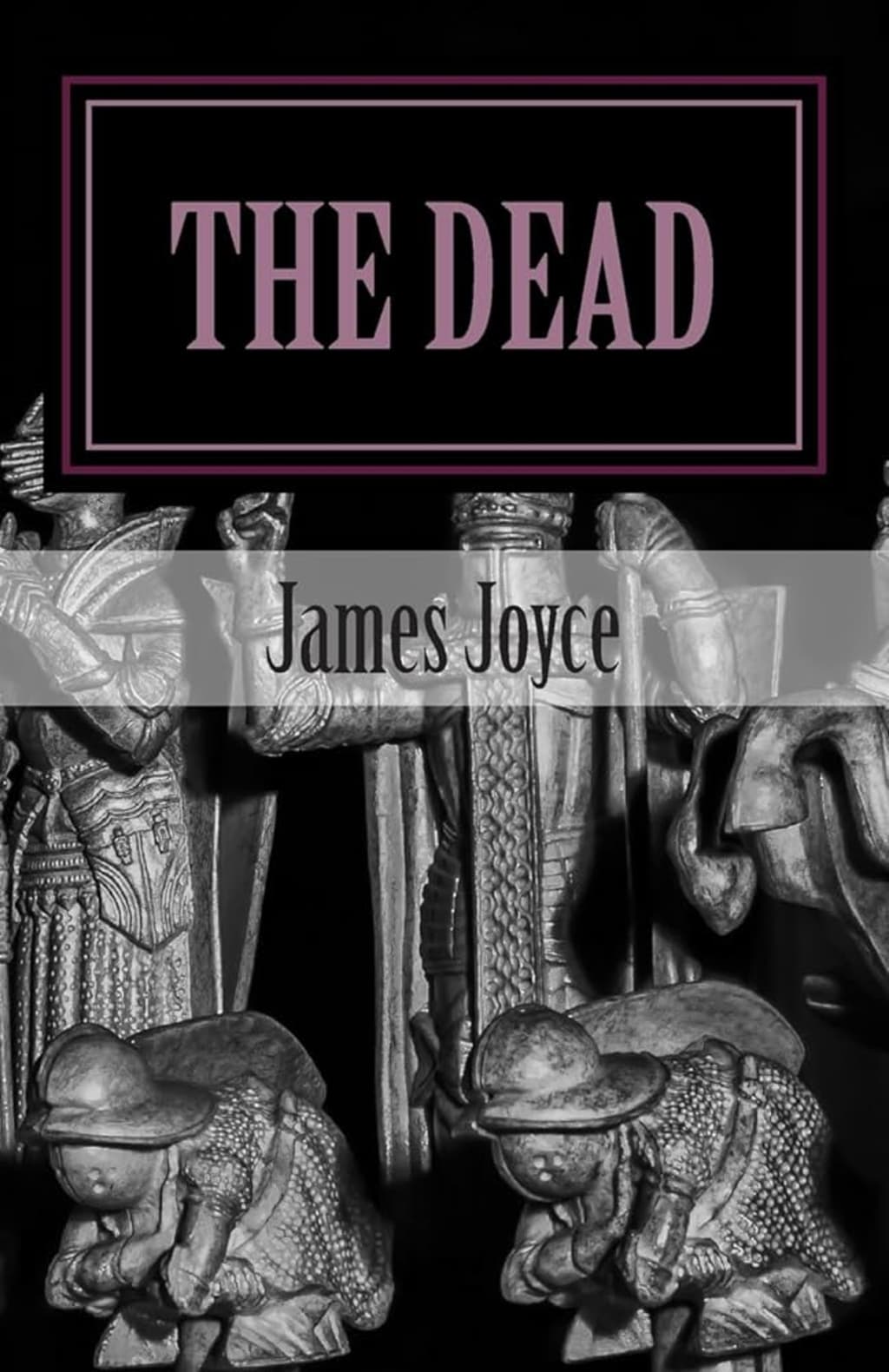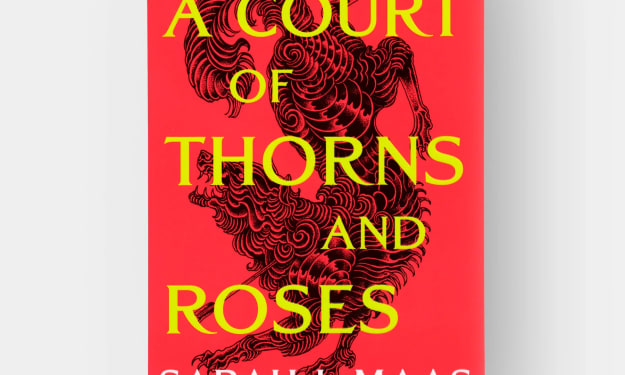We Need To Talk About “The Dead”
like actually, we really do

Calling upon all my literature nerds! I summon you all for a very important meeting.
Guys—we need to talk about James Joyce’s “The Dead.” Sorry, but we do.
I am getting back into reading this year, and when I say reading, I mean hardcore reading. Even in my biggest reading slumps, I’m always reading a lot of mindless novels—romance and fantasy are my consistent go-to’s. I also poison my brain with the likes of the entire Harry Potter series at least once every two years, and I do it unashamedly. God, those books are so good. Sorry, not sorry. One of the best worldbuilding successes in literary history.
But I had not read what you may call a “classic” in a very long time, unless it was necessary for school. I was always interested in a lot of the classics presented to me in an academic setting, but for some reason I found that for many of them, there was a block. There was a block, an invisible barrier, between me and the book that stopped me from being able to read and absorb it. I blamed this firstly on my own unintelligence, secondly on my poor analytical skills, and thirdly and finally on my Gen Z borne lack of patience.
It could be an amalgamation of the three that prevent me from being able to let these classics into my brain and work through all its rusty cogs, or it could be something else entirely; I actually really don’t know. But this was the situation for me. I just could not, for the life of me, read an older, academic, widely critically acclaimed “classic” book. This was the case for Shakespeare’s The Tempest. This was assigned in not one but two of my college classes, and I still couldn’t get through it either time around. While there were engaging parts of it, especially near the end, I just found it kind of boring and a little stupid, as well as too hard to read to even bother trying. This was also very much the case for Paradise Lost, which was so fantastic in some of the parts that I did read. But once again, I couldn’t help but get lost in its difficulty and stray away from finishing it completely. (I do wholly plan on returning to this one, though. The Tempest—eh. Maybe.)
For a long while, the only novels I was stomaching were fantasy and romance, and while these are very important and immersing genres, it was during this summer that I found myself wanting to consume something with a little more depth. Because sometimes we all need to send ourselves back to school in our minds. It’s a random impulse, and a welcome one.
So the following semester, my lovely college professor had my class read most of the short stories from Joyce’s Dubliners. I thought this would be a perfect opportunity to start coaxing myself to care about one of the most famous literary geniuses of the past. I mean, this guy wrote Ulysses. He’s a big deal for a reason. I started reading, and as I went through the book slowly but surely, I found it wasn’t much of a chore at all to be reading these stories—rather, it was quite fun and interesting. Once I finished “The Dead” it became an obsession.
“The Dead” is, point blank, the best short story I have ever read. The amount of symbolism and detail that Joyce crams into this story is ridiculous. Let’s just get right into it.
Our main character is Gabriel, this pretentious, kind of socially awkward dude who resides in Dublin with his wife Gretta. Our guy Gabriel here is trying really hard to fit in with a more European identity than an Irish one for no reason other than he wants to. He’s more drawn to the scholarly and academic movements happening in England than in any of the boring, stagnant stuff going on in his own country. Gabriel believed, echoed by Joyce’s own personal views on Ireland and Dublin in particular, that Ireland was in a current state of paralysis. The culture, the religion, the politics, the fashion, even the people themselves—they are frozen, stuck in the past, arguably due to their lack of a new identity after oppression by the British. So the current Irish Nationalism thing happening—Joyce was not here for that, and neither is Gabriel. Gabriel, embarrassed and unsatisfied with his country’s identity, is constantly looking eastward at England, the Continent, for inspiration and education.
Several times throughout “The Dead”, there are references to windows and the tapping of windows. The first example we see of this is Gabriel tapping at the window after his rather tense confrontation with Ms. Molly Ivors; “Gabriel’s warm trembling fingers tapped the cold pane of the window… How pleasant it would be to walk out alone, first along by the river and then through the park. How much more pleasant it would be than at the supper-table!” Gabriel’s tapping at the glass here, on a surface level, is just impatience. It represents his feelings of being trapped at the party. As an intellectual, he feels he cannot be himself or discuss the things that interest and intrigue him in great detail with his more homely, less intellectually motivated family members. Instead, he finds himself running around doing hospitable activities for them to keep them happy and himself distracted and content with making himself look like a saint. By doing this, Gabriel is… being a narcissistic douche, basically. He feels he is stooping down to the level of his family for a night out of charity, viewing himself as above the people and the conversations occurring at the dinner. When he is well beyond the window of his confinement at the dinner with his family, he is more than a traditional Irish family man. He is not the man who just underwent yet another awkward encounter with a woman at a dinner party, wishing to escape away into the night; he is an intellectual and a scholar. Since Gabriel’s strengths lie in academics rather than in social interaction, he views this side of himself as better and more significant than both his familial side and the lives of his contemporaries at the dinner. The window here serves as the barrier between Gabriel and the freedom of the night, as well as a mirror-like reflection of Gabriel’s own scholarly, European-esque pride. Joyce, you dog.
Windows also represent a barrier between the realms of the living and the dead, as well as between the past and future. Gabriel heard a tapping at the window of his hotel room after he believed he saw Michael Furey outside under a tree, and when he looked outside he saw the snow falling, famously, “upon all the living and the dead”. The window gives Gabriel a direct look into the past of his wife Gretta, a past he was unaware of. It also grants him access to the past of Ireland which he had ignored for so long. The window shows him that Ireland’s living and dead are connected as snow falls equally on them all, highlighting how no human is smarter or better than another in this life and how people are all equal in death. The window acts as a way for Gabriel to look at Ireland past and see and understand the depth of it, and it is a big reason Gabriel decides by the end of the short story that it is time to start looking westward. Not at the Continent, but at Ireland itself. Chills, guys. Chills all over my entire body when I read that.
Also, Michael and Gretta give such Romeo and Juliet vibes, which may be symbolic of something I have not yet comprehended. Or just Joyce paying homage.
The snow that persists in the story all throughout serves as a symbol for the mortality of humankind. After hearing the story of Michael Furey, the young boy who died for Gretta in her past, Gabriel leaves her to grieve and goes to watch the snow fall outside. As he watches it, he is hyper-fixated on learning about the young boy’s passionate death and is consumed by the bitterness and insecurity he feels towards his own life and its emotional emptiness; "Better pass boldly into that other world, in the full glory of some passion, than fade and wither dismally with age.” Gabriel realizes he has no passion that ignites his life akin to the likes of Michael Furey, therefore he is less alive and lives a life more dead than the deceased Furey is. He comes to this epiphany as he watches the snow, cold and dangerous, fall outside on everything, enshrouding it all in cold bleakness. Gabriel no longer wants to be cold and bleak towards the people around him, as his lack of relationships may end up deeming his life utterly meaningless. He no longer feels comfortable completely ignoring association with his homeland in favor of the Continent, despite his views on Ireland that differ from many of his family’s. He is the first character in Dubliners to come to a conclusion that may result in a complete change of his life, and he is also the first to question the meaning of his life; to merely dare to question gives him a development and a bravery above that of many other characters in the short stories.
“The Dead” is just amazing, everybody. I’ve been thinking about it nonstop. At work, at school, at home, with my mom, with my boyfriend—I’m thinking about James Joyce, and I’m not afraid to say it. He is just too good.
Thanks for reading!
About the Creator
angela hepworth
Hello! I’m Angela and I love writing fiction—sometimes poetry if I’m feeling frisky. I delve into the dark, the sad, the silly, the sexy, and the stupid. Come check me out!






Comments (1)
It is probably the best story you have ever read because it is the best short story ever written. Thank you for this one!